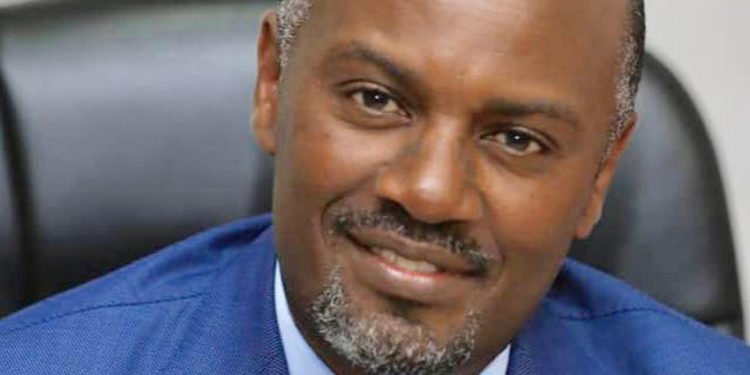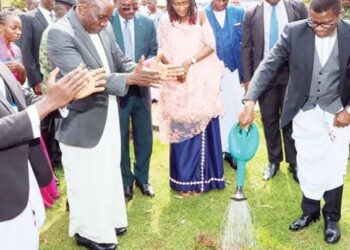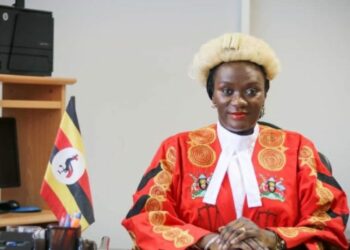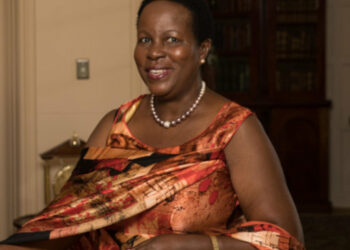Sometime in 2014, I went with my son, Michael, then a lad of 19 years, to Serena Hotel in Kampala for lunch. I was in Constitutional Court challenging the Anti-Homosexuality Act (AHA) Uganda’s parliament had passed and President Yoweri Museveni had assented to, providing a death sentence for homosexuals. At the restaurant, I met a powerful Ugandan minister whom I will not name for reasons that will become obvious later in this narrative.
“Mwenda,” she yelled, “you are the scam of this country. How can you support homosexual perverts?” I smiled and told her that homosexuals are human beings too. “You must be one of them yourself,” she yelled back, rising her voice, “and you are all wild beasts.” When I offered my hand for greeting, she refused to shake it. Then I said, “please meet my son, Michael.”
She looked at me in shock: “You mean you have a child,” she asked rhetorically, “I have always thought you are a homosexual. And he is a very handsome boy.” All of a sudden, she became courteous to me as she greeted Michael, “Now what if you were sleeping with men, would you have had such a fine boy?” she asked. I told her that the fact that I have a son or children does not automatically mean I cannot [or do not] have sex with men. She dismissed this statement saying I am provoking her: “What if you found out Michael is a homosexual, how would you feel?”
I told her that I would not want my son to be a homosexual, not because being so is a bad thing, but because of the stigma and hate he would suffer at the hands of people like her, who are more than 90% of our population. I asked her what she would do if her son (whom I named), was a homosexual. “I would kill him,” she turned angry again and said with indignation, “I would kill him with my own fists. I would burn him like hell.”
Here is the interesting part: this lady’s particular son had approached me two years earlier and told me that he is a homosexual but has been hiding this fact from his parents and siblings. He said he has always listened to me on radio, watched me on television and read my articles in newspapers defending homosexuals. “You going to court was a great and inspiring thing to me,” he said, “I really admire your courage to defend gay rights in the face of so much ignorance, so much prejudice and hate”
I had always asked this young man to tell his parents about his sexuality to which he said they would never understand; that it would only break their hearts. “You may actually open their minds,” I would say, advice he rejected. Now watching the mother right in front of me threatening to kill him confirmed my conviction that this boy should come out and tell his family. I know his mother as a kind and understanding person. Her anger and vitriol are because she has no idea that her own son is a homosexual.
This story only reflects the social complexity of homosexuality: unlike racism, here the enemy you passionately hate and want to kill is next to you yet invisible: it is your son or daughter, your mum or dad, wife or husband, cousin, aunt or uncle, best friend or favorite teacher, etc. But you don’t or won’t know. Hence, every day you are busy denouncing homosexuals with vitriol, you are attacking (and psychologically wounding) these people closest to you and making them hide their true identity.
The hate Ugandans exhibit towards homosexuals actually reconciled me with racists. As a child I was horrified by stories of the terrorism white supremacists inflicted on black people in USA. Yet I would read speeches of Martin Luther King Jr. saying these white supremacists are themselves victims of hate. His call for emancipation was double sided: to liberate black people from being terrorized by white racists and to liberate white supremacists from the prison of hate and prejudice that led them to act inhumanely.
I found King’s message defeatist. How can killers be imprisoned in the same cage as those they massacred without mercy? The killers must be evil people. I got attracted to Malcom X who argued that hate should be answered with hate. Confronted with Uganda’s homophobia, I realized King was right. Many people who say (or even do) very evil deeds are not necessarily evil people, even though many are. Some are just victims of the biases and prejudices deeply rooted in their upbringing.
The lady minister I began this story with is actually a very nice person. She has always been kind and generous to me. Her homophobia is a reflection of inbuilt prejudices that were inculcated into her by her upbringing and manifest automatically without her thinking. She loves her son whom she would not harm if she knew he is a homosexual. She will go to parliament and support legislation to hung homosexuals because she is ignorant and prejudiced – a victim of her upbringing, not an architect of it.
Coincidentally, parliament passed the “amended” anti-homosexuality act when I was reading Isabel Wilkerson’s fascinating book, Caste: The Origins of Our Discontents. It is a book about how white America has kept black people at the bottom as a lower caste – first enslaving them, then discriminating against them under an apartheid system till 1965 and now holding them in mass incarceration. The book is filled with horror stories of white terror. A white lady grabs her daughter who has shaken hands with a black girl and scrabs her hands to remove any impurities she may have contracted. A black man is lynched by a white mob for looking at a white woman with what the white people claim were “amorous eyes” etc. etc.
The Ugandan parliamentarians who just passed the “amended” law to imprison homosexuals for being who they are not evil people. And so are the millions of Ugandans who support this law. Very many of them are good people who, through their upbringing, are inculcated with hate of fellow human beings who are different from them – like white racists are. We should not condemn them but only feel pity for them. To justify their prejudice, they clutch on self-interpretation of tradition (actually they event tradition), then cling to the bible (itself a foreign religion to reject what they call foreign cultural influence), and finally look for pseudo-science.
It is impossible to reason with these people because this is not a subject for logic. It is an emotive issue regarding our people’s moral judgments. In The Righteous Mind, the moral psychologist, Jonathan Haidt, gives a powerful insight. He argues that people’s moral judgments shape their reasoning, rather than the other way round. Reasons purport to explain and justify judgments. But in fact we grasp at reasons and pull them into service to legitimise judgments that we have already made on the basis of our moral tastes.
On no significant issue is all the evidence lined up on one side of the argument. Our ethics determine the reasoning and evidence that we are prepared to accept. We give credence to the flimsiest of straws in the wind that are aligned with our values, while dismissing opposite evidence with a torrent of contempt and vitriol. For instance, while parliament claims to have passed the AHA to protect against child molestation, the police annual crime report shows that 99% of all reported cases of sexual abuse of minors in Uganda are by heterosexual men against little girls.
Do you have a story in your community or an opinion to share with us: Email us at editorial@watchdoguganda.com













